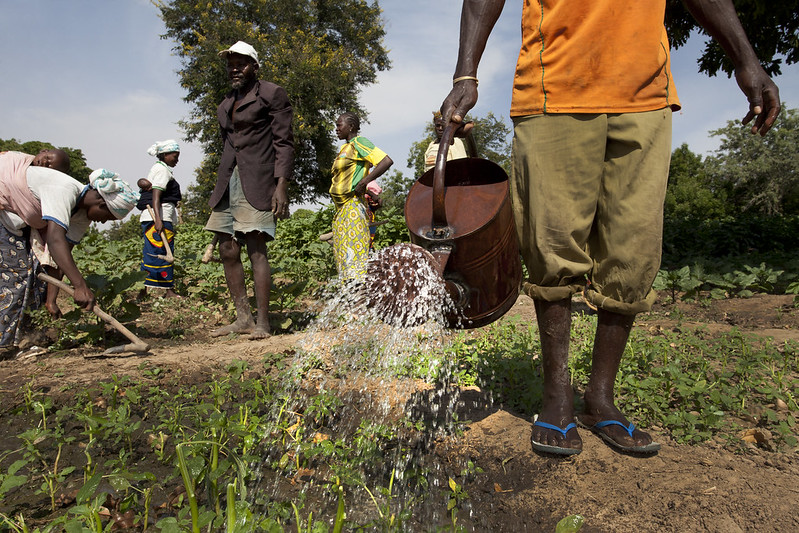Submissions - What we publish
Special Edition Call for Papers
The Journal of Fair Trade is calling for papers to curate a Special Edition on “The Life and Work of Frans van der Hoff.” We welcome expressions of interest by 15 January 2025. Read more here.
Here Guidelines for contributors are available.
If you have ideas or questions
please email Emma Anderson, emma.anderson@joft.org.uk .
Volume 6 Issue 2
The Journal of Fair Trade is calling for papers to curate a Special Edition on "Livelihoods, Community Resilience & Evironmental Regeneration: the role of smallholder organisations, coops & Social Enterprise".
We welcome expressions of interest by  1 July 2024 and article submission by 15 January 2025.
1 July 2024 and article submission by 15 January 2025.
If you have ideas or questions
please email Emma Anderson, emma.anderson@joft.org.uk .
Livelihoods, Community Resilience and Environmental Regeneration: the role of smallholder organisations, coops and social enterprises. What is the case for and against the role of farmer coops, social enterprises/third sector organisations in sustainable transformation and mitigating climate change?
There is a growing sense that "projectised social" and environmental interventions are costly and not always 'durable'. Do SPOs/coops/SME alliances and clusters that acquire skills, infrastructure and community presence and have more longevity or more impact?
The JoFT Society is accepting Submissions now. We welcome producer co-op/social enterprise case studies/experiences as well as theoretical work, critique and evaluation.
Accepting expressions of interest for deadline 1st July 2024 and article submissions by 15 January 2025
Here Guidelines for contributors are available.
___________Volume 6 Issue 1
The Journal of Fair Trade is collaborating with UNHCR/Made 51 and others, to curate a Special Edition, around the themes of: refugees, economic inclusion, vulnerable workers, upskilling entrepreneurs, self-reliance, employment, local integration/local economies, and the role/potential of fair trade practices and approaches. We encourage case studies, book and literature reviews and theoretical work on this key topic.
Accepting Submissions now, deadline February 1st 2024.
Guidelines for contributors are available on the JoFT website.
Contact Emma Anderson, Journal Manager, emma.anderson@joft.org.uk if you have ideas or questions.
On credible content and impact:
The Journal of Fair Trade invites from anyone who wishes to contribute to the debate and all contributions will be constructively reviewed in line with the Journal's single-blind peer review policy.
Right now, following the June Fair Trade Symposium International at the University of Leeds, we’ve started preparation for a Special Journal of Fair Trade edition in 2024 with FTIS2023 colleagues as Guest Editors. In preparation for this we’re keen to gather details from anyone interested in acting as a content “reviewer” for the Journal of Fair Trade. Please via our Reviewers form here.
The Journal of Fair Trade invites from anyone who wishes to contribute to the debate and all contributions will be constructively reviewed in line with the Journal's single-blind peer review policy. Please see details of our Call for Papers on the theme of ‘Fair Trade Connections’ for the forthcoming JOFT special issue and Guidelines for Contributors details of article types and submission requirements as well as our Open Access Publishing Permissions .
Please see details of our Call for Papers on the theme of ‘Fair Trade Connections’ for the forthcoming JOFT special issue and Guidelines for Contributors details of article types and submission requirements as well as our Open Access Publishing Permissions .
A video has been created to help you submit papers on our system for this Special "Fair Trade Connections" Issue. please click here to view.
Here is our regular, non-special Edition Submission Guidelines document.
For any questions regarding the Guidelines for Contributors, the submission process and copy deadlines, please contact Emma Anderson , Journal Manager. To discuss a prospective journal contribution please contact Pauline Tiffen, Editor-in-Chief.
Authors of all accepted contributions will be asked to provide a square, portrait photo and to prepare a tweet length summary of their contribution. We will check and support any authors with the requirement of setting up an ORCID number.
The Journal of Fair Trade Society confirms strong endorsement of the Journal of Fair Trade being a scholarly journal not a magazine, advocacy or marketing.
On how the Society wants to best run and the Journal for the next 3-5 years here are shared views and broad agreement from the Autumn 2022 Society meeting.
• We can have a wide range of articles and voices including manifestos, opinions and perspectives, but these need to be labelled as such to distinguish them from scholarly work as so much of what is published on fair trade, standards, or certification is not systematic, and it is hard to separate what is real research and what is ‘marketing’.
• The Journal should focus on multi-disciplinary, peer-reviewed work, methods and approaches that are robust, data-driven (whether quantitative or qualitative or other methodologies) if we want to be impactful, and for the articles to be taken seriously and read for a long time to come.
• Journal articles are credible sources of information for other writers and researchers who reach mainstream audiences, politicians and policy makers which expands the reach and impact.
• Further, the issue of intersectionality was raised: not seeing trade as trade alone, divorced from its roots in colonialism, unequal gender relations, and so on. It is important to promote collaboration across disciplines and authors who think this way. Fair trade can and should find connectivity with many other disciplines. Setting the fair trade movement within and alongside other movements was stressed.
• The Pluto Journals family with its wide-ranging subject matter was considered as an untapped strength for the Journal of Fair Trade.
• The Journal needs to consider including: publishing and making available work in different languages (French, Spanish, Welsh et al) and the English language domination in the Fair Trade field. The group discussed the inevitable reliance on volunteers because of cost of translations, and the ‘best of the bunch’ software options like DEEPL (https://www.deepl.com/en/translator).
